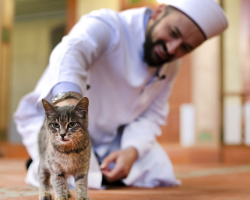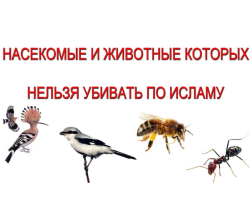Chicken eggs are a natural healthy product that can even eat even many allergies without harm to their health. And if they were demolished by your home chickens, then you will know with one hundred percent confidence that they are fresh, and therefore dietary.
Content
There is no guarantee that in the store or on the market you will be lucky to purchase fresh testicles, besides, the price for them is now happy with a high one. That is why not only farmers, but also ordinary citizens of various professions brought in their personal plots of Kurochki-nails. Of course, this is a great help for the family budget. But the trouble, you started the chicken, feed them “to the dump”, and for some reason they are in no hurry to delight you with an abundance of testicles. Do not blame the innocent birds in this, just beginner poultry farms should organize proper feeding. What should be the diet of chicken to improve their egg production in different pores - read in our material.
What is the best way to feed chickens for egg production in summer, winter, spring, autumn?
With properly organized feeding, you can stimulate your chickens to year -round egg production - of course, except for a short period of their molting.

Summer
Summer is a fertile for chickens. Lots of herbs, vegetables and fruits They allow poultry farmers to feed their pets cheaper, and chickens with appetite and benefit for themselves use all this.
Summer feeding standards:
- The daily norm of the chicken diet should include: 50 g of grain and hay flour, 40 g of fiber, 15 g of protein feed, 10 g of vitamin -containing feed.
- There are special compound feeds, already enriched with all the necessary substances for summer chickens. But for home chicken it is hardly worth buying, as it will cost you very expensive.
- It will be much cheaper to balance the diet of laying layers with your own hand.

- On warm summer days, your chickens will need moderation in feeding. This is a misconception, if you think that the more they give them feed, the more they will carry eggs more often. On the contrary, due to obesity of birds, the number of eggs in the nests will decrease sharply. You will be perplexed, where are they going? Is it really any affection for the path to your chicken coop and drags eggs from it? And this is just your obese chickens to “be lazy” to fulfill their direct duties.
- In order to prevent obesity, they need to be given less protein components, since in the summer the energy of the chickens is not spent as intensively as in the cold. So that you are better oriented in whether you give them impermissible a lot of food or not, remember the norm of feed for one chicken is from 120 to 140 g. Change them to the number of your chickens, and then weigh the food that you give to your crests during the day.
- If you get too much “extra” food - without any doubt and hesitation, immediately cut them a “ration”! If you noticed that they have already begun to gain excess mass, feed them with oats, barley, and especially with grass. In general, in the summer it is necessary to give them as much grass as possible - it contains fiber and vitamins that will not allow obesity, and the egg production will increase.
- During the abundance of grass, it will not be superfluous to prepare it for the winter (spread out with a thin layer in the shade, and when it dries in a standing), and in the cold your layers will be grateful to you for it.
- We found that it is necessary to feed chickens in small portions. But keep in mind that it should be different, so alternate it. For example, in the morning they can be poured with grains, then - one grass, etc.


Do not allow your chickens to have ticks, because these small parasites contribute to a decrease in productivity.
- In summer, you need to feed chickens 3-4 times with equal intervals. This will allow their weight to remain at the same level, so their egg production will not fall.
Kuras, just like people, cannot be dispensed with without proteins, fats, carbohydrates and vitamins:
- Protein nutrition The most diverse can serve for your crests insects (what you can catch), and also razzer worms, caterpillars, bone flour. In addition to animal protein, birds should also receive plant. They will provide your pets with wheat grain and barley, as well as different legumes.
- Fat There are sufficient quantities in corn, oats and grain. But do not forget about the main rule: do not overfeed the bird with fats so that they do not gain excess weight.
- As carbohydrates starch acts, and it is in abundance contained in potatoes, beets, corn.
- You can vitaminize the chicken diet with the help grass, fish oil, silage. They contain vitamins of group A, B and D.
Chickens should also receive whole grain, in the shell of which there is fiber, which contributes to proper digestion. Experienced poultry farmers advise giving the bird various cereals, constantly alternating them, and feed them several times a week. If you decide to increase the egg production in your layers, then make so that the lion's share of their diet (at least 50%) is wheat.
In winter
Winter norms:
- Balance feed for chickens for everyone. Knowing what and how much should be in the daily bird diet, you can cook food with your own hands.
- One chicken is needed: grain-70 g (15 g of wheat-wrecking mixture, 20 g of oatmeal combination); boiled or raw grated vegetables - 100 g; chalk - 3 g; bone flour - 3 g; cake - 15 g; yeast - 1 g; Salt cook - 0.5 g; Meshanka - 30 g.
- With the advent of winter, you will have to radically change the chicken diet - if you expect from chickens that they will be carried in the cold.

What is the difference between summer and winter feeding? First of all, in the maximum variety of feed.
- Chicken requires sufficiently a variety of nutrients that will help them not freeze and continue to carry. A full -fledged winter menu will be considered if it contains dry, combined and wet food.
- After all, now hens cannot independently obtain grass and protein food in the form of all kinds of insects. Therefore, they need to give In the afternoon, juicy and green food, and in the evening - dry, all this-for 3-4 doses.
- Dry food can consist of compound feeds, bran and grains of buckwheat, millet, corn, barley, oats, rye, wheat.
- Granded or finely chopped vegetables are considered juicy feeds - their feeders can be filled carrots, pumpkin, beets, zucchini. It will be better if you are dented vegetables with ground grain - so the products will be better absorbed.
- Do not forget about green feed - Their birds should receive as much as possible in winter. The absence of fresh grass can be replenished due to coniferous branches, nettles and multi -grass, prepared and dried in the summer.
- And about extreme utility sprouted oats and wheat grains Probably everyone knows.

Chickery hours of chickens in winter:
- The first meal should take place immediately after the awakening of the birds. It is best to feed them with wet mixers with crushed grain in the morning, crushed potatoes, bran, mineral additives and flour - fish or bone.
- All components can be mixed in the evening, but you need to fill and knead it immediately before feeding, since the mixers are not subject to storage.
- Dinner For chickens, it comes about o'clock in the afternoon, it is desirable to feed them again with a stirring.
- Chicken dinner You must have time to scatter around the feeders in about an hour and a half before the laying lines will be settled in bedtime. At night, they must be fed with whole grain.
And do not forget about one of the main components of the winter feeding of chickens - greens that can be given to them between feedings.
Spring
- Spring is the period when many poultry farmers select eggs for laying in an incubator. And maybe you decide to put them under the hen for the removal of chicken offspring.
- In both cases, it is unacceptable for the eggs to be fat - it is unlikely that something will hatch, and if the chickens are born, then they will be frail.
- Therefore, in the spring, you need to feed chickens even more enriched minerals additives and vitamins (calcium is very important for the formation of a high -quality shell), and carbohydrates in which there is an excess of starch (potatoes, corn).
With the advent of spring heat, the diet of spring feeding can be compiled in accordance with summer standards and menu.
In the fall
In the early autumn, when the yard is still warm and there is grass, the chicken diet can be equated with the summer, and continue to feed the birds so that they rush well 2 times a day, and when the cold is already coming, then to the winter, when you have to feed 3 times already.
- The main thing is sufficient vitaminization. If there is no way to balance the food ourselves, in the pet stores you can purchase for your chickens special suits for the main feed, called "Premix".
- They do not have harmful and dangerous components, but, on the contrary, excellent content of utility.

You can supplement the diet in the autumn offseason:
- dried laminaria plates (the egg shell is strengthened and the yolk is saturated);
- fish oil (saturates the body of chickens with fatty acids);
- probiotics (immunity is strengthened and the digestive process is normalized);
- apple cider vinegar (plumage becomes better, health improves);
- chickens should also receive vitamin A - large eggs are made large, and the yolk in them - bright. If it is not enough in the body of a bird, then the cornea of \u200b\u200bthe eye will be very dry in her;
- the immune system is strengthened with vitamin E, and the egg production increases. Its disadvantage can lead to muscle disease and nerve tissue;
- vitamin D prevents rickets, its first sign - the shell becomes soft. Vitamin B makes digestive and endocrine system in normal mode.
All these vitamins can be balanced by natural products themselves or purchased already developed vitamin complexes.
- In the autumn months you can feed chickens fresh berries. It is the best suited for replenishing the body of birds with vitamins acorns, rosehips, red mountain ash, hawthorn, chestnut. With such a rich vitamin set, no purchased complexes are needed!
- Collect more such berries in order to dry them in sufficient quantities, and then added in a crushed form to the main stern in late autumn and winter. As greens in the cold, except for all those vegetables that we have already mentioned above, you can give cabbage leaves.
- They are either finely cut and added to the mixed, or tied to some kind of pole-so the product is less trampled, and the chickens are easier to peck. It is important to remember that it is better not to overfeed the vegetables of birds, since they can start diarrhea from this. If such a nuisance has already occurred, it is necessary to temporarily suspend feeding with vegetables.
Is it possible to feed chickens with food that a person eats?
- If the owner will constantly diversify the menu to his birds, then in this case he will collect a lot of eggs. You can also make variety waste from the human table.
- Of course, not everyone can feed chickens (read about prohibited products below). The main nutrition can be safely replenished without damage to the chicken health, cereal, dried with fruit products, vegetable and fruit peeling, tops, fish heads and giblets, meat and bone residues.
- Also, for mixing, you can use broths of both meat and fish, sour -milk coat.
How to cook a chickens?
- This is one of the good recipes of a mixed, which helps to increase egg production.
- You can use it, or you can make your own adjustments to it.
The calculation is given for one bird for one feeding.
Have to take:
- 0.05 kg of boiled potatoes
- 0.03 kg of grain
- on a spoon of legumes and bran
- 0.5 g of table salt
- 2 g of crushed chalk and bone flour and fish oil and twice as much ashes or chopped grass.
Mix everything, pour 50 ml “sour -milk” or warm water. Feed chickens in warm form.
Forbidden products for feeding chickens
The list of products contraindicated for feeding chickens, from which they can get sick or even die, is very solid. Do you want your hens to be healthy, vigorous and rushing well?
Exclude from the diet:
- green or sprouted potatoes and water after their cooking;
- fresh Kh/B foods (stale white bread is permissible);
- moldy baking (it is especially worth being afraid of white and black mold);
- store sausages (they have a lot of different chemistry, and they are strictly prohibited to chickens!);
- milk and cheese;
- soups in which there are fat and spices;
- sweets;
- alcohol, since the liver of birds does not process it (as an exception, drugs can be used, which are based on alcohol - but in this case it is diluted with water);
- chicken;
- unexpected lime;
- citrus crusts;
- watermelon crusts.
Useful articles for chickens:
- Breeds of chicken
- Crucian eggs: why?
- Why chickens do not carry eggs, chickens do not rush
- Breeding chickens of broilers
- What is the difference between white chicken eggs from brown, which is better
- Are there cholesterol in chicken and quail eggs







